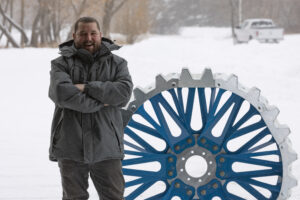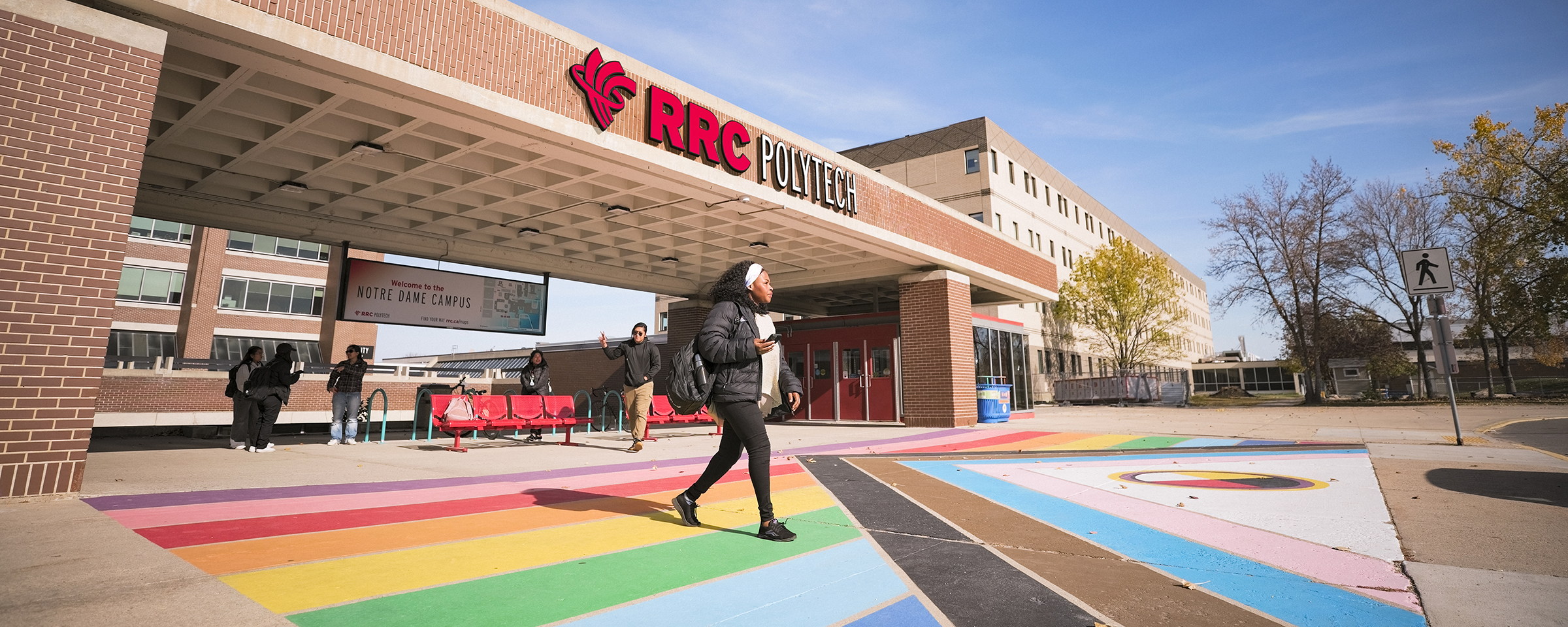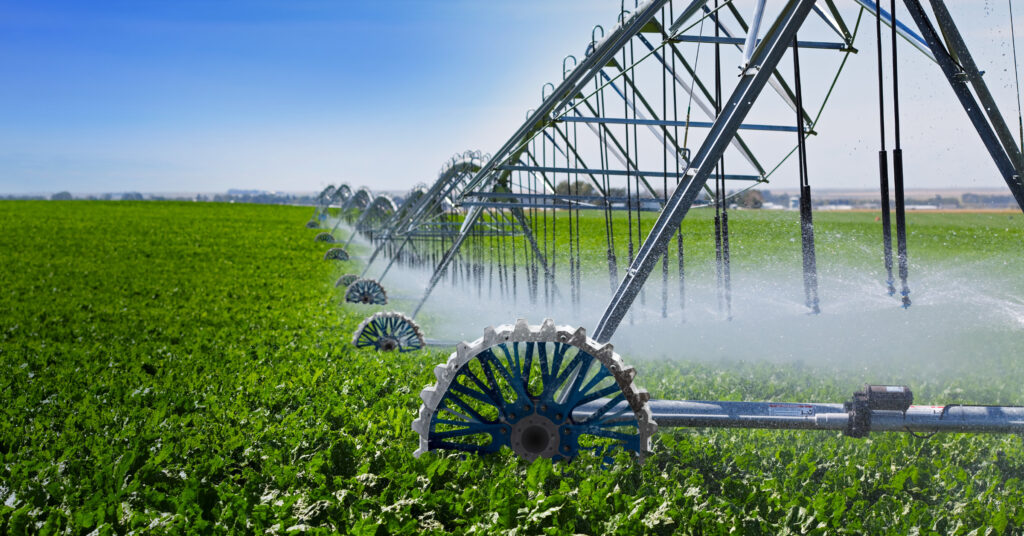Reinvented irrigation wheel ready to hit market with help from TACAM
It’s not often you can say you literally reinvented the wheel, but Matt Waldner of Cascade Manufacturing has that distinction.
Waldner, with ongoing support from the Technology Access Centre for Aerospace and Manufacturing (TACAM) at RRC Polytech, is set to bring a low-maintenance, all-steel bolted wheel for irrigation systems to market this year.
Cascade, a company located in MacGregor, Man., that specializes in the design and fabrication of agricultural irrigation products, has been in business for 15 years and has been working on the bolted wheel since 2018.
Cascade’s all-steel wheel solves the age-old problem of deflated tires. The typical agricultural irrigation system you’d see from the highway uses that more classic definition of the wheel — with steel rims and an air-filled rubber tire, connected to the system by a nomadic pivot.
However, these wheels — as anyone who takes a spring drive through the city knows — are prone to losing pressure, wearing out and cracking over time under heavy use. This is where the all-steel wheel comes in.
“Nomadic pivots work really great, except for the issue of rubber degradation causing a maintenance issue,” says Waldner. “It might be three or 15 years, but within that time, the rubber will degrade and start to go flat in the middle of the field. With steel, we wanted to eliminate that integrity factor for flat wheels.”
 After starting the prototype in 2018, Waldner found that there were issues with his own wheels, including the steel cracking from “concentrated stress points.”
After starting the prototype in 2018, Waldner found that there were issues with his own wheels, including the steel cracking from “concentrated stress points.”
By reaching out and partnering with TACAM on a design review, Cascade began working on a solution. TACAM performed a design review of the wheel to identify and address high mechanical stress areas and potential points of failure. With 3D CAD files provided by Cascade, TACAM was able to use in-house expertise on 3D modelling and finite element analysis (FEA) to evaluate the stresses throughout the wheel.
Cascade then used recommendations from TACAM to redesign the wheel, both in terms of workability and cost reduction. The original bolted wheel failed under 10,000 load cycles; after the redesign, it is expected to last over 200,000.
“It made a better, more robust design. That had to be done twice — first with the prototype, then again with the modified design.”
The partnership between Cascade and TACAM was so successful that the two are at it again.
“We’re also currently working on a two-year project on a variable nozzle design for sprinkler irrigation, so that we can have a varied control of water control going through a nozzle for sprinklers. We’re now on our second iteration of that nozzle — we identified some issues with the first analysis and now we’re looking to improve on that while continuing with the wheel.”
As for the wheel, manufacturing processes are wrapping up and Cascade is beginning to market the product to a local and international customer base. Waldner expects to have 150 wheels made and sold in 2023.
Profile by John Gaudes (Creative Communications, 2012)

